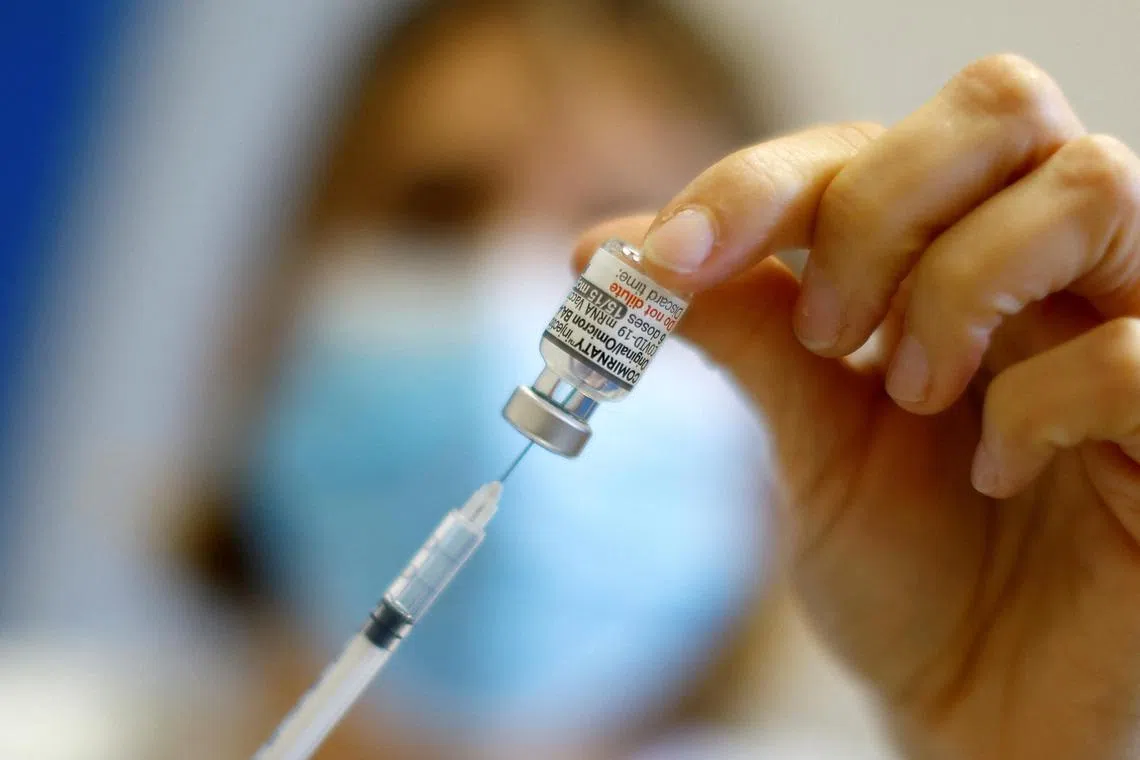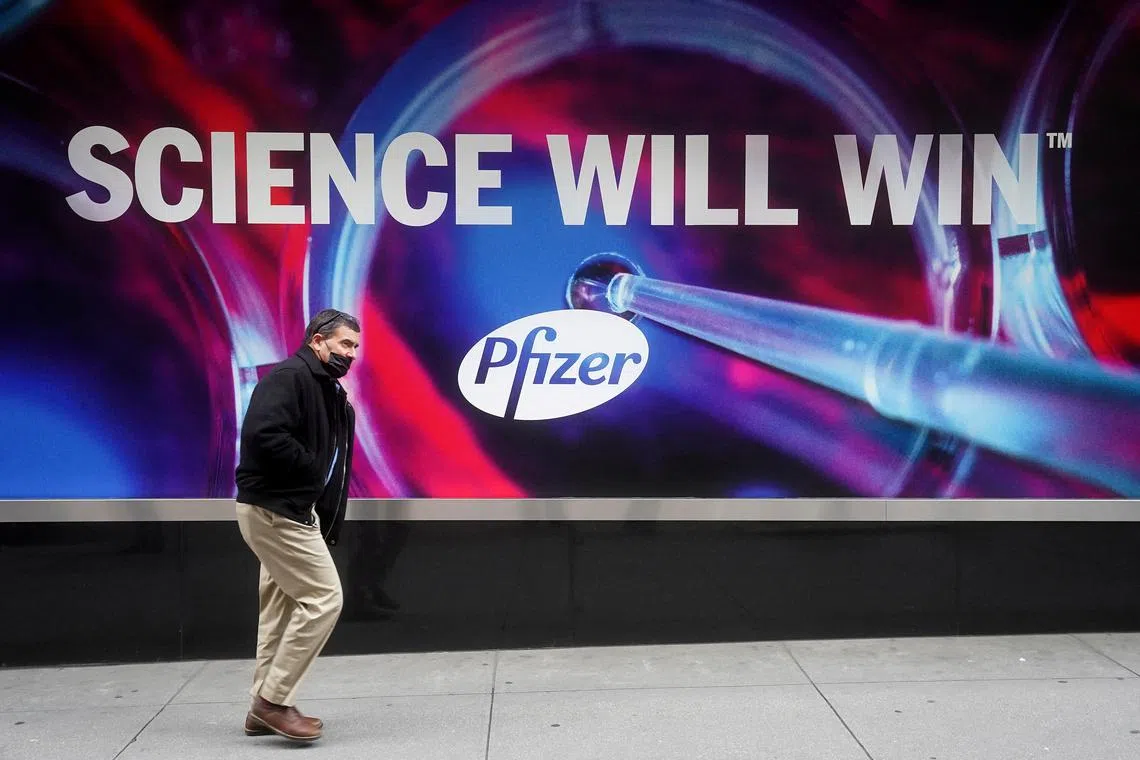Pfizer sees steep 2023 fall in Covid-19-related sales, aims to bolster pipeline
Sign up now: Get ST's newsletters delivered to your inbox

Pfizer's CEO expected 2023 to be a “transition year” for the company’s Covid-19 products, before potentially returning to growth in 2024.
PHOTO: REUTERS
Follow topic:
NEW YORK - Pfizer on Tuesday forecast a bigger-than-expected drop in sales of its Covid-19 vaccine and treatment for 2023, intensifying investor concerns over demand for the products as governments cut orders and work through inventories.
Chief executive Albert Bourla said that 2023 should be a “transition year” for Pfizer’s Covid-19 products, before potentially returning to growth in 2024.
Pfizer’s total annual sales crossed the US$100 billion (S$131 billion) mark for the first time in 2022, driven by the more than US$56 billion in sales of its Covid-19 vaccine and Paxlovid antiviral treatment. It expects total 2023 revenue of US$67 billion to US$71 billion.
“We are building on a significant capital position that we know how to deploy to create growth,” Mr Bourla told analysts and investors on a conference call. “We are building a research and development engine that is more productive than ever.”
The company launched five new products in 2022 and hopes to introduce as many as 14 more over the next 1½ years, including a vaccine for respiratory syncytial virus and an mRNA flu vaccine.
Pfizer shares were down slightly at US$43.53. The stock had tumbled 15 per cent in January, up to Monday’s close.
Citi analyst Andrew Baum said the company is struggling to escape its dependence on Covid-19 drugs. “We see little here to change our cautious view on Pfizer’s ex-Covid-19 business,” Mr Baum said in a research note.
The decline in Covid-19-related revenue is not the only headwind Pfizer is facing. The US drugmaker will lose patent protections for some big-selling drugs after 2025, including cancer treatment Ibrance and arthritis drug Xeljanz, and has said it expects to lose US$17 billion in annual sales between 2025 and 2030 due to patent expirations.
Pfizer has turned to acquisitions such as its US$5.4 billion buyout of Global Blood Therapeutics and its US$11.6 billion purchase of migraine drugmaker Biohaven to bolster its pipeline of future products.
Citi’s Mr Baum said he expects Pfizer will use the spike in revenue from its Covid-19 products to “intensify and upscale” its efforts to buy other companies or new products to fill its pipeline.
Excluding Covid-19-related sales, Pfizer expects 2023 revenue to grow 7 per cent to 9 per cent.

Excluding Covid-related sales, Pfizer expects 2023 revenue to grow 7 per cent to 9 per cent.
PHOTO: REUTERS
Pfizer developed its Covid-19 vaccine with German partner BioNTech, and the companies split the profits. Pfizer forecast 2023 sales of US$13.5 billion for their vaccine, below analysts’ estimates of US$14.4 billion, and projected US$8 billion in Paxlovid sales, short of Wall Street’s expectation of US$10.33 billion.
Mr Bourla said the company expects to start selling its Covid-19 vaccine Comirnaty through commercial channels in the United States in the second half of 2023, rather than selling the shots directly to the government. After that transition, the company hopes to roughly quadruple the US price of the vaccine.
Analysts and investors have been looking for clarity on China’s demand for Paxlovid, where the drug is covered by the country’s broad healthcare insurance plan only until late March.
Pfizer said its current 2023 forecast for sales does not assume any revenue from China after April 1, but Mr Bourla said the company expects to offer Paxlovid in the private market there thereafter.
“There is still an opportunity for a market in China which could be meaningful” outside of the country’s main insurance channels, said BMO analyst Evan Seigerman. REUTERS

